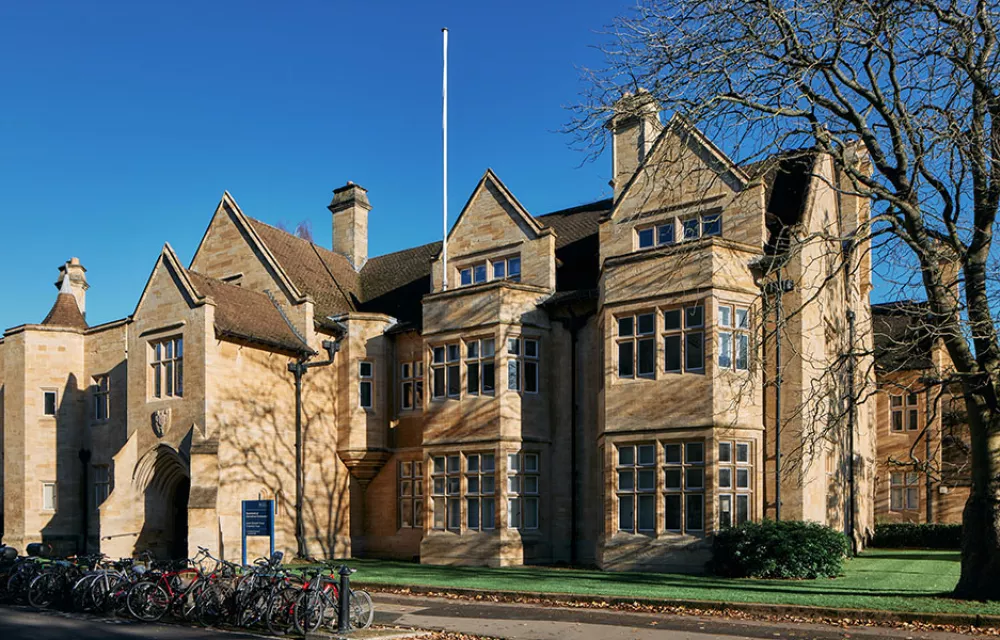ODID is the focus at Oxford for postgraduate teaching and advanced research on developing countries and emerging economies, and on their relationship with the rest of the world
Our vision
The Oxford Department of International Development fosters transformative thinking on development and global change. We work to understand the structures and processes that cause inequality and exploitation, to analyse political institutions and power, to advance, diversify and decolonise knowledge in our fields of study, and to influence the theory, analysis, and practice of development worldwide.
Our mission
We promote intellectual breadth, depth and vibrancy through our degree programmes and research groups, which keep us at the cutting edge of teaching and research. We nurture a democratic and supportive culture internally where all staff and students feel valued and heard. Our diverse staff and student body of outstanding calibre is built and supported by inclusive recruitment and teaching, and our sustained commitment to funding scholarships. We collaborate externally with scholars, development practitioners, policy-makers, international institutions and local organisations to co-create and share knowledge and ideas across the world.
About ODID
ODID is part of the University of Oxford’s Social Sciences Division. Our research explores a wide range of global issues, from security and global governance, to migration and human rights; from poverty and inequality to technological innovation and enterprise; from children and youth to urban transformation. Our research is clustered around four major thematic areas, which are in turn embedded in, and illuminated by, the study of specific regions of the developing world:
Economics of Development
Research on the economics of development has been a long-standing strength of the department. Characterised by an emphasis on the testing of analytical models on primary empirical data, research on this theme engages with the full spectrum of development economics.
Political & International Dimensions of Development
Development, as managed change, is an inherently political process. The exercise of power and resistance to it are at the heart of that process. Research on development, therefore, requires a critical approach to the state and dominant institutions – local, national and international – and an analysis of how power is created and contested at multiple levels.
Human Development, Poverty & Youth
Poverty and human development have long been core areas of research for the department. Going beyond a narrow conception of per capita income, our approach incorporates health, education, living standards and quality of work – all of which enable productive, creative and autonomous lives.
Migration & Refugees in a Global Context
Migration in its various forms has become a central feature of international development in its economic, political, legal, social and cultural dimensions. Oxford now leads the world in research on this vital subject.
The interdisciplinary nature of this research means the department works closely with numerous other departments, faculties and colleges within Oxford. It is uniquely well networked across the collegiate University.
Its seven postgraduate degree programmes are research-led, and combine research methods training with independent research, preparing students for a broad range of careers paths, including in academia and policy.
The department is also home to four research groups that are at the forefront of their fields: the Oxford Poverty and Human Development Initiative, the Refugee Studies Centre, the Technology and Management Centre for Development, and Young Lives. These groups work with key research partner institutions in the Global South, and engage in extensive policy advisory work for governments, international agencies and civil society organisations.
Together with the Blavatnik School of Government and the Department of Economics, ODID also leads the Oxford-LSE International Growth Centre (IGC) established by DFID (now FCDO) and co-hosts the Centre for the Study of African Economies (CSAE) in Oxford.
Intellectual freedom and freedom of speech and expression
Intellectual freedom is the lifeblood of an academic institution. In our pursuit and dissemination of knowledge at ODID, we promote open and critical enquiry and exchange of ideas, and uphold freedom of speech and expression. We celebrate debate and discussion in an atmosphere of mutual respect, tolerance and recognition of the sensitivities of all members of our community, ensuring that no one feels either intimidated or censored.
The Head of Department is Professor Jocelyn Alexander.

